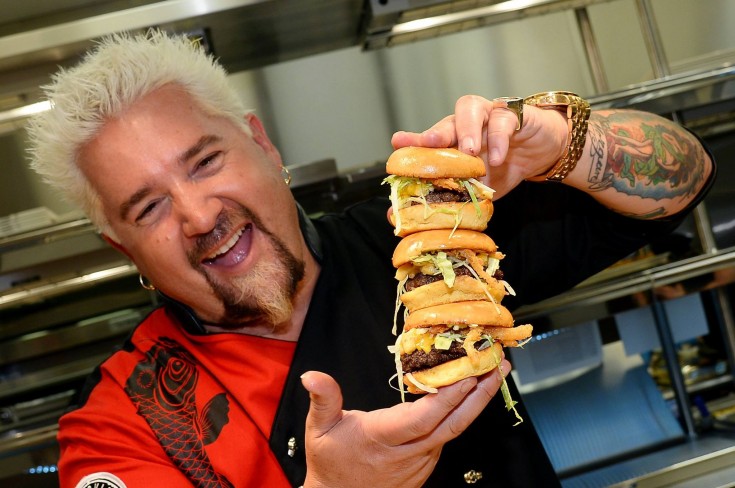
This week's episode of The Sporkful podcast is up! Listen through the player, Stitcher, or Apple Podcasts. (And please subscribe!)
**Warning: This episode contains some explicit language.
(Editor's note: This is Part Three of our special series on race and culture in families. We recommend starting with Part One.)
Soledad O’Brien grew up on Long Island with an Afro-Cuban mom and an Irish-Australian dad. She always knew her family was different:
"My mom's black, my dad's white. He has an accent, she has an accent. We were a black/Latino family in a 99 percent white community. There was no Cuban cuisine," says the TV news host and reporter.
So Soledad's mom made Cuban food a big part of their home. Staying connected to Cuba through food was especially important because they couldn't go back there to visit family.
"I don't think when I was growing up that I really understood how cut off my mom was," Soledad tells us in this week's Sporkful. "All you have left of your childhood is a handful of recipes."
Today, her mom has dementia and she never learned to cook her mom's black beans.
"My mom made it so well, for so long," Soledad says, "It just never occurred to me that there'd be a day that she wasn't going to make them."
In the third episode in our special series, Your Mom's Food, we talk to Soledad O'Brien about the role food has played in her mixed-culture family life -- both growing up and with her own children today.
Things have changed a lot since Soledad's parents got married in 1958 -- almost a decade before interracial marriage became legal throughout the U.S. (They had to go to Washington, DC, to tie the knot because they couldn't get married in Maryland, where they were living at the time.)
On their first date, Soledad says, "They'd been trying to go out to a restaurant [in Baltimore] and no one would seat them together", because they're an interracial couple.
Soledad was born in 1966 (above, Baby Soledad with her parents), a year before her parents' marriage became legal across the country.
'They couldn’t get a house -- no one would sell a house to a black person," Soledad says. "So if my dad went by himself, he could go and see the property. But he would bring my mom so that she could weigh in on whether or not she liked the house and suddenly it would disappear from the market."
Even in the late 1970s, when Soledad was in middle school, it hard being in a mixed-race family:
"People were just not aware -- biracial people was not a thing," she says. "Middle School is basically a circle of hell anyway. Middle School in an all-white neighborhood with an afro is a really challenging circle of hell."
But there were some advantages -- like the churros Soledad used to bring to school on special occasions:
"I don’t think anybody was like, 'Wow churros, this is so different,’" she recalls. "I think they just thought, 'Oh my god, she brought something packed with powdered sugar. We should start there."
Listen in to the full discussion to hear how Soledad's Cuban and Irish family traditions came together on her family's dinner table, and how her parents (shown above) navigated tensions around food.
Plus, Soledad tells us how she keeps her own children in touch with her mom's Cuban culture, despite never learning to cook.
This week's episode of The Sporkful podcast is up! Listen through the player, Stitcher, or Apple Podcasts. (And please subscribe!)
Connect with me on Twitter, Instagram and Facebook!
Interstitial music in this episode from Black Label Music:
- "Pong" by Kenneth J. Brahmstedt
- "On The Floor" by Cullen Fitzpatrick
- "Minimaliminal" by Jack Ventimiglia
- "Feel Real Good" by William Van De Crommert
- "Child Knows Best" by Jack Ventimiglia
- "Legend" by Erick Anderson
Photos: Courtesy of Soledad O'Brien and FlickrCC/observista





